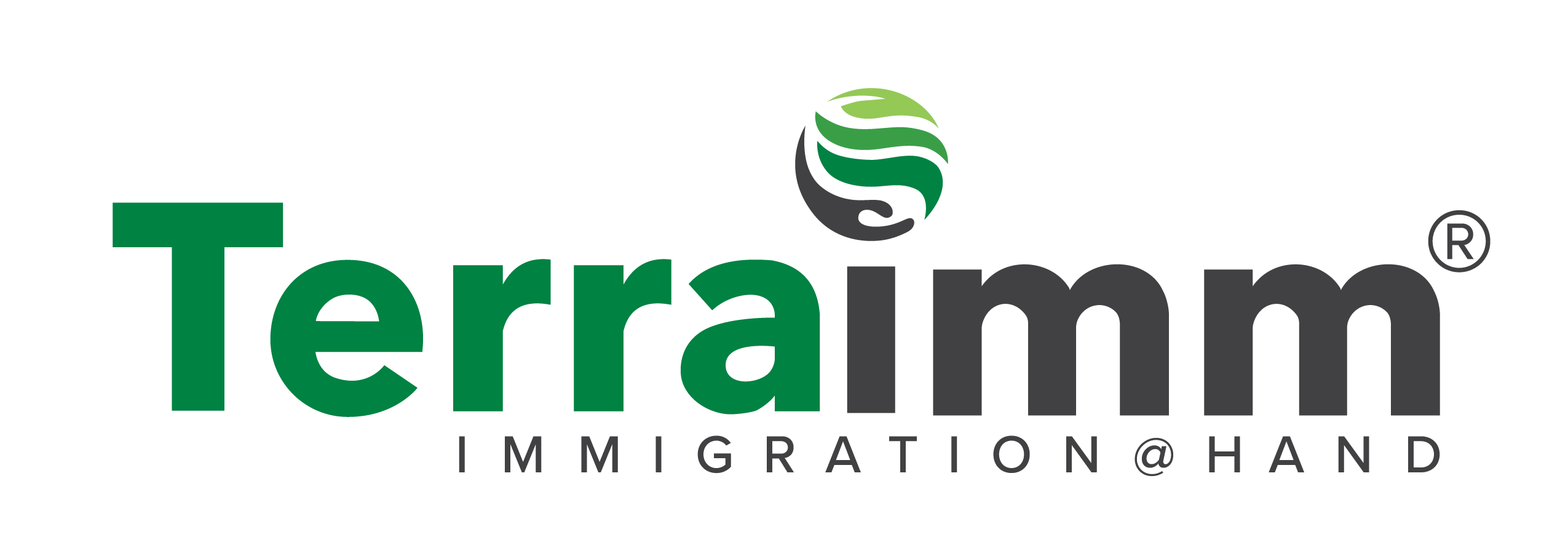For more information:
Overview:
- What is a TN visa?
- What are the benefits of a TN visa?
- What are the TN visa requirements?
- What documents are needed to apply for a TN visa?
- What is the process to get a TN visa?
- How to from a TN visa to a green card
- Conclusion
1. What is a TN visa?
The TN visa is a non-immigrant visa category offered to Canadian and Mexican nationals. You can live and work in the United States for lengthy periods with a TN visa. The TN classification allows you to work in the United States for a period of up to three years, which can be extended indefinitely.
To be eligible for a TN visa, you must work in one of the TN vocations in the United States (these professions are listed down below). You must also meet the educational requirements and qualifications for the profession in which you will work.
Trade NAFTA is abbreviated as TN. The TN visa is based on the Treaty of the North American Free Trade Agreement (NAFTA).
2. What are the benefits of a TN visa?
These are the benefits of the TN visa:
Length of stay
With a TN visa, you can stay in the United States for up to three years. There is also no limit to the number of times your TN status may be extended. As a result of the TN classification, you may be able to legally live and work in the United States for several years.
No quota
- The TN visa has no quota
No Labor Certification Required
- The TN visa classification does not necessitate an authorized Labor Certification from your U.S. employer.
- A Labor Certification confirms that your U.S. employer was unable to identify a qualified U.S. worker to fill a post for which you are being hired.
- Obtaining an authorized Labor Certification can be a time-consuming procedure.
- Your U.S. company does not need to obtain an authorized Labor Certification to obtain a TN visa. They may skip this step and simply give you a job.
No visa is required for the citizens of Canada
- A TN visa is not necessary for Canadians. They can apply for TN status at any U.S. port of entry.
Immigration benefits for your family
- Your spouse and children may be eligible for TD classification if you have a TN visa. They cannot work in the United States, but they can attend U.S. schools.
Premium processing
- Premium processing is available for the TN visa.
- Premium processing is a service provided by USCIS in which the agency will respond to your petition in 15 days or fewer for an extra price of $1,225.
3. What are the TN visa requirements?
To qualify for a TN visa, there are 5 main requirements:
- You must be a Canadian or Mexican citizen.
- Permanent residents of Canada and Mexico are ineligible for TN visas.
- You work in the United States, you must have a job offer.
- The TN visa does not permit self-employment and does not let you establish a business in the United States and work for it. Working for a firm in which you are the only owner or controlling shareholder does not qualify you for a TN visa.
- Your job must be on the TN Occupation List.
- The TN classification does not permit all occupations. Your employment in the United States must fall into one of the specified professions.
Here is a list of TN occupations, along with the required educational degree and professional experience:
General Occupations:
- Accountant – Bachelor’s degree OR CPA, CA, CGA, or CMA
- Architect – Bachelor’s degree OR State/provincial license
- Computer System Analyst – Bachelor’s degree OR post-secondary certificate and 3 years of computer experience
- Disaster Relief Insurance Claims adjuster – Bachelor’s degree and successful completion of training in the appropriate areas of insurance adjustment about disaster relief claims or 3 years of experience in claims adjustment and successful completion of training in the appropriate areas of insurance adjustment about disaster relief claims
- Economist – Bachelor’s degree
- Engineer – Bachelor’s degree or state or provincial license
- Forester – Bachelor’s degree or state or provincial license
- Graphic Designer – Bachelor’s degree
- Hotel Manager – Bachelor’s degree in hotel/restaurant management or post-secondary diploma or post-secondary certificate in hotel/restaurant management and 3 years o experience in hotel/restaurant management
- Industrial Designer – Bachelor’s degree or post-secondary certificate and 3 years of experience
- Interior designer – Bachelor’s degree or post-secondary diploma or post-secondary certificate and 3 years of experience
- Land Surveyor – Bachelor’s degree or state, provincial, or federal license
- Landscape Architect – Bachelor’s degree
- Lawyer (including notary in the province of Quebec) – LL.B, J.D., LL.L, B.C.L, or Licenciatura degree (5 years) or membership in a state or provincial bar
- Librarian – M.L.S. or B.L.S. (for which another Bachelor’s degree was a prerequisite)
- Management Consultant – Bachelor’s degree or equivalent professional experience as established by statement or professional credential attesting to 5 years of experience as a management consultant or 5 years of experience in a field of specialty related to the consulting agreement
- Mathematician (including statistician) – Bachelor’s degree
- Range Manager/Range Conservationist – Bachelor’s degree
- Research Assistant – Bachelor’s degree
- Scientific Technician/Technologist –
- No degree required (but the TN worker must directly support a degreed professional)
- Possession of theoretical knowledge of any of the following disciplines: agricultural sciences, astronomy, biology, chemistry, engineering, forestry, geology, geophysics, meteorology, or physics
- The ability to solve practical problems in any of those disciplines or the ability to apply principles of any of those disciplines to basic or applied research.
- Social worker – Bachelor’s degree
- Silviculturist (including Forestry Specialist) – – Bachelor’s degree
- Technical Publications Writer – Bachelor’s degree or post-secondary diploma or post-secondary certificate and 3 years of experience
- Urban Planner – Bachelor’s degree
- Vocational Counselor – Bachelor’s degree
Medical Fields
- Dentist – D.D.S., D.M.D., Dentist surgeon
- Dietician – Bachelor’s degree or state provincial license
- Medical Laboratory Technologist/Medical Technologist – Bachelor’s degree or post-secondary diploma or post-secondary certificate and 3 years of experience
- Nutritionist – Bachelor’s degree
- Occupational Therapist – Bachelor’s degree or state or provincial license
- Psychologist – Bachelor’s degree or state or provincial license
- Recreational Therapist – Bachelor’s degree
- Registered Nurse – Bachelor’s degree or state or provincial license
- Veterinarian – D.V.M., D.M.V. or Veterinarian doctor or state or provincial license
Scientist Occupations
- Agriculturalist (including Agronomist) – Bachelor’s degree
- Animal Breeder – Bachelor’s degree
- Animal Scientist – Bachelor’s degree
- Apiculturist – Bachelor’s degree
- Astronomer – Bachelor’s degree
- Biochemist – Bachelor’s degree
- Biologist (including plan pathologist) – Bachelor’s degree
- Chemist – Bachelor’s degree
- Dairy Scientist – Bachelor’s degree
- Entomologist – Bachelor’s degree
- Epidemiologist – Bachelor’s degree
- Geneticist – Bachelor’s degree
- Geochemist – Bachelor’s degree
- Geologist – Bachelor’s degree
- Geophysicist (including Oceanographer) – Bachelor’s degree
- Horticulturist – Bachelor’s degree
- Meteorologist – Bachelor’s degree
- Pharmacologist – Bachelor’s degree
- Physicist – Bachelor’s degree
- Plant Breeder – Bachelor’s degree
- Poultry Scientist – Bachelor’s degree
- Soil Scientist – Bachelor’s degree
- Zoologist – Bachelor’s degree
Teacher Occupations
- College teacher – Bachelor’s degree
- Seminary teacher – Bachelor’s degree
- University teacher – Bachelor’s degree
You must satisfy the Educational and Professional Requirements of U.S. Job
You must meet the educational and professional standards of the U.S. employer to qualify for the TN visa. The educational and professional prerequisites for each of the TN vocations listed above may be found here.
Here are some tips regarding the educational and professional requirements:
Degrees
- A Bachelor’s degree is required for most jobs.
- A three-year degree might be considered a baccalaureate. It does not have to be a four-year program.
- Your degree should be in the same or a relevant discipline to your chosen TN employment.
- If you received your degree, certificate, or diploma outside of the United States, Canada, or Mexico, you must additionally submit a credentials evaluation confirming
State or Provincial License
- A state or provincial license may be accepted in exchange for a degree in the various vocations listed above.
- A state or provincial license is any document granted by (or under the jurisdiction of) a state, provincial, or federal government that allows someone to engage in a regulated activity or profession. Documents issued or authorized by municipal governments do not qualify.
Post-secondary certificate
- A post-secondary certificate or diploma can meet the educational requirement for the numerous vocations listed above.
- A post-secondary certificate is a “certificate issued by the federal government of Mexico or a state government in Mexico upon completion of two or more years of post-secondary education at an academic institution created by federal or state law.” (NAFTA) is an abbreviation for the North American Free Trade Agreement.
- To be eligible for TN, the post-secondary credential or certificate must have been obtained in the United States, Canada, or Mexico.
You must be seeing temporary entry (Non-Immigrant intent)
- You must have non-immigrant intent to be eligible for a TN visa. The TN allows “temporary entrance” into the United States.
- Temporary entrance is defined as “entry with no intention of establishing permanent residency.” [NAFTA] is an abbreviation for the North American Free Trade Agreement.
- To meet this condition, you must show that you intend to depart the United States after your TN assignment is completed.
- Your non-immigrant intent will be evaluated when your petition is assessed when you apply for your TN visa, and when you enter the United States.
Proving Non-Immigrant Intent
- To demonstrate your non-immigrant purpose, indicate that your U.S. assignment is transitory and has a definite expiration date.
- If at all feasible, you should offer documentation that you have a foreign residence overseas and intend to keep it.
- You must also offer proof that you have significant links to your foreign residence. A mortgage in your name for a foreign property, foreign bank accounts, invoices addressed to your foreign domicile, a job offer to resume employment in your home country upon completion of your TN assignment, and so on are examples of evidence demonstrating significant links to your foreign residence.
Additional Points on Non-Immigrant Intent
- Although you must have non-immigrant intent, this does not exclude you from applying for a green card in the future.
- Your non-immigrant purpose is considered during the application, visa issuance, and admission into the United States.
- If you decide to apply for a green card in the future, you may still be able to do so.
4. What documents are needed to apply for a TN visa?
The facts and paperwork you present with your TN application are critical to its approval. Many of the papers you provide will be determined by your particular qualifications, available documents, and other factors.
Evidence of your Canadian or Mexican Citizenship
- Canadian Passport
- Mexican Passport
Support letter from your prospective U.S. employer
The support letter from your U.S. employer is one of the most crucial pieces of proof of your TN petition
The following should be addressed in the support letter:
- The professional actions you will do for the U.S. corporation
- Your duties for the American corporation
- An explanation of why the U.S. corporation needs your services
- Describe your educational background and professional skills for the position
- The salary and additional benefits you will get
- The letter of support should be written on corporate letterhead and signed by an authorized representative of the firm
Employment contract
- In addition to the support letter, your employer may want to separate the employment contract.
Evidence of your non-immigrant intent
You will be required to show documentation proving your non-immigrant purpose. These papers should preferably demonstrate that you have strong links to your native country.
Here are examples of documents that show non-immigrant intent:
- Title to a property in your home country in your name
- Bills sent to your foreign address
- A letter from a foreign employer saying that you will be returning to work when your TN assignment is completed
- Account at a foreign bank
- Evidence of international commitments/responsibilities
- Evidence indicating you have a spouse or children living in another country
Educational and Professional Qualifications
- Degree
- Certificates
- Licenses
- Letters from former employers evidencing previous work experience
- Resume
5. What is the process to get a TN Visa?
The procedure for obtaining TN categorization differs between Mexican and Canadian nationals. To emphasize one of the primary distinctions, Canadian citizens do not need to apply for a TN visa. Instead, Canadian nationals can apply for TN status at any U.S. port of entry. Mexican nationals, on the other hand, must apply for a TN visa at a U.S. Consulate before entering the United States. Canadian nationals may file a first TN petition with USCIS and have their TN pre-approved before requesting entry through a Port of Entry. Mexican citizens cannot submit a first TN petition with USCIS. They must instead apply for a TN visa directly through a U.S. Consulate.
Canadian Citizens
Canadian citizens have 2 options for getting TN classification.
- Directly applying for TN classification at a U.S. port of entry
- Submitting a Form I-129 to USCIS
Applying for TN classification directly at a United States Port of Entry
- To get a TN visa, Canadian nationals do not need to file a petition or application. There is no need for a form.
- Canadians are often excluded from requiring a visa to enter the United States. Instead, a Canadian person can request TN classification at any United States Class A port of entry.
- A Canadian citizen must pay a $50 processing fee and furnish the necessary documentation to do so.
- A valid Canadian passport
- A letter of support from a U.S. employer
- Proof of professional and educational credentials
- Proof of non-immigrant intent
- A Customs and Border Protection officer will examine your evidence at the point of entry. The officer will most likely inquire about intended employment tasks, professional experience, and so forth.
- If you meet the TN standards and pass the interview, you will be admitted to the U.S. and given TN status.
Submitting Form I-129 through USCIS
- If Canadian citizen wishes, they may file a petition with USCIS to be pre-approved for TN status.
- The U.S. employer will specifically submit a Form I-129 with USCIS on behalf of the TN worker. The petitioner is the U.S. employer, while the beneficiary is the TN worker.
- The U.S. employer must additionally complete the TN supplement to the I-129 in addition to the Form I-129.
- The I-129 is authorized, the TN worker may take the approval notification, their Canadian password, and the completed I-129 with all accompanying documentation to a U.S. port of entry.
- A Customs and Border Protection officer will evaluate your paperwork and may question you about your TN petition at the port of entry.
- The fact that your I-129 was accepted does not ensure that you will be granted TN classification.
- You should still be prepared to answer inquiries about your anticipated work tasks, credentials, and so on.
- Having your petition authorized by USCIS, on the other hand, should increase your chances of being approved at the port of entry.
- You do not have to pay a $50 processing fee at the U.S. port of entry if you file a Form I-129 through USCIS.
Mexican Citizens
Mexican citizens, unlike Canadian citizens, must apply for and get a TN visa before entering the United States as a TN worker. Mexican citizens are not authorized to apply for TN status at a U.S. port of entry without first obtaining a TN visa. Furthermore, Mexican citizens must instead apply for a TN visa at a U.S. Consulate abroad.
Apply for a TN visa at U.S. Consulate
- Before entering the United States as a TN worker, Mexican residents must apply for a TN visa.
- To do so, a TN worker must first fill out and submit an online Form DS-160 Non-Immigrant visa application form. This can be done here.
- The TN worker must then make an appointment with the U.S. Consulate to get a visa.
- The TN visa application price is $160.
- The following documents must be brought to the visa interview by the TN worker
- A valid Mexican passport
- A letter of support from a U.S. employer
- Proof of professional and educational credentials
- Proof of non-immigrant intent
- During the visa interview, you will most likely be questioned about your intended employment tasks in the United States, your qualifications, and other similar inquiries.
- If you are approved, you will be given a TN visa.
Port of entry
- Following the receipt of a TN visa, a TN worker must apply for TN classification at a U.S. port of entry.
- You must carry your Mexican passport, TN visa stamp, and support statement to the U.S. border.
- Your TN petition will most likely be denied by the customs and border protection officer at the U.S. port of entry. They may ask you for some generic inquiries.
- For Mexican citizens, there is no $50 charge at the port of entry.
- After approval, you should be granted TN status for up to three years.
Change of status
- Canadian and Mexican citizens may also apply for a change of status. A change of status occurs when you transition from one non-immigrant status to another.
- To alter your status, you must be lawfully present in the United States in some valid non-immigrant status.
You must additionally file Form I-129 while in the United States.
6. How to go from a TN visa to a green card?
To get a green card, you can file for an adjustment of status or get an immigrant visa overseas and then transition from a TN visa to a green card.
- An adjustment of status occurs when you go from non-immigrant to immigrant status. The entire procedure may be completed in the United States without the need to travel overseas. To file an adjustment of status petition, you must be lawfully present in the United States at the time the petition is filed. You must file Form I-485 with USCIS to alter your status.
- Applying for an immigrant visa is not the same as adjusting one’s status. An immigrant visa must be applied for at a U.S. Consulate overseas. This procedure also necessitates a visa interview at the U.S. Consulate.
- Whether you alter your status or apply for an immigrant visa, you will almost certainly need to be authorized for an immigrant classification by completing a Form I-140 with USCIS.
As a TN professional, one of the most typical methods to transition from a TN visa to a green card is for your U.S. employer to sponsor you for a green card via a job offer. The U.S. employer must apply for and be authorized for a Labor Certification to sponsor you for a green card through a job offer.
The Department of Labor issues a Labor Certification. To get a Labor Certification, the U.S. firm must demonstrate that it made steps to source a competent U.S. worker for the post, but was unable to do so. Once the Labor Certification has been obtained, the U.S. firm may sponsor you for a green card.
Important: The TN classification requires you to have non-immigrant intent. Obtaining approval for an immigrant petition may clash with the requirement for non-immigrant purposes. As you might expect, acceptance of an immigration petition might be interpreted as clear proof of immigrant intent. It is critical to engage with a knowledgeable immigration attorney throughout the whole process of transitioning from a TN visa to a green card.
- Working with a knowledgeable immigration lawyer can assist you to ensure that you do not break the non-immigrant intent requirement.
- An immigration lawyer can assist in ensuring a seamless transition from a TN visa to a green card.
7. Conclusion
By now you should have a better understanding of:
- What is the TN visa is
- The benefits of a TN visa
- The TN visa requirements
- The documents needed to apply for TN classification
- The process of getting a TN visa
- How to go from a TN visa to a green card









